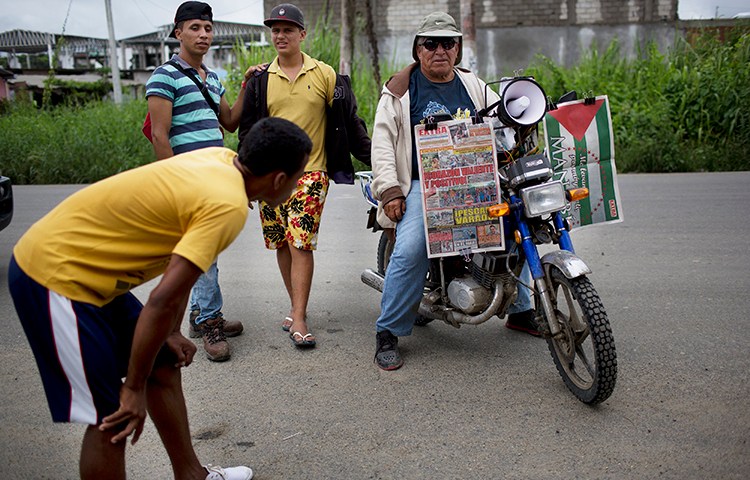
Correa’s legacy leaves a long road to recovery for Ecuador’s journalists
Since taking office in May, Ecuadoran President Lenín Moreno has pledged to end a decade-long battle between the government and the media. But several reporters and editors with whom CPJ spoke said that the anti-press campaign carried out by Moreno’s predecessor, former President Rafael Correa, has caused lasting damage to journalism in Ecuador.
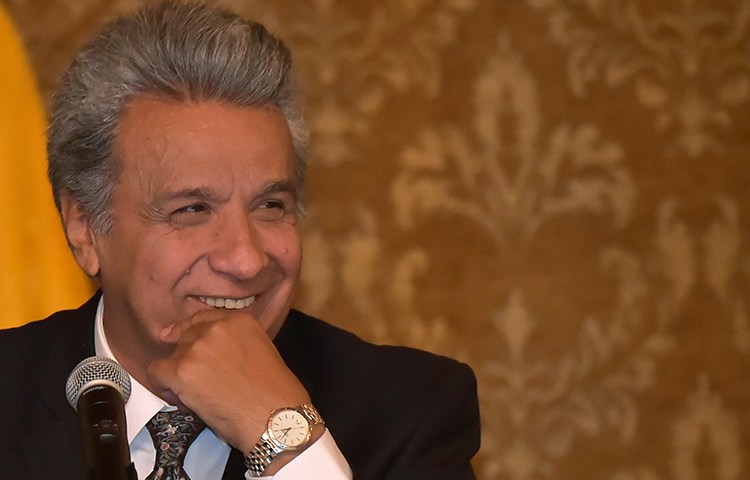
Ecuador’s Moreno opens new era in relations with media
Less than a month after taking office, Ecuadoran President Lenín Moreno engineered a ceasefire in the decade-long battle between the government and the nation’s independent news media by inviting a group of radio, TV, and newspaper editors to the Carondelet presidential palace in Quito.
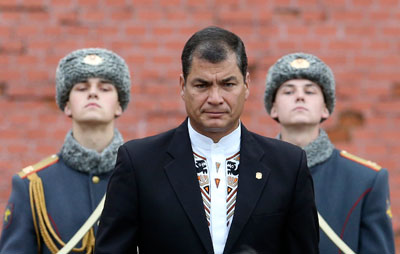
Correa steps up fight; hacking alleged on both sides
Seven months after Ecuadoran President Rafael Correa flirted with the idea of offering asylum to former National Security Agency contractor Edward Snowden, intercepted communications and leaked emails are again making headlines in the Andean country. This time, the story is not about international surveillance but a window onto the latest front in the ever-escalating war…
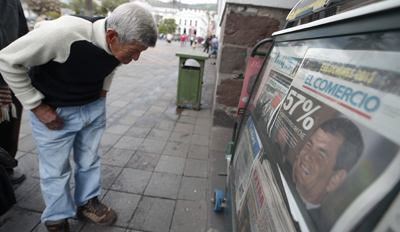
Battle between Correa, Ecuadoran press to wage on
In the wake of President Rafael Correa’s landslide re-election on Sunday, many Ecuadoran reporters are bracing for another four years of conflict with his left-leaning government. Neither side claims to relish the prospect, but continued clashes seem inevitable given the bad blood that has developed between them.
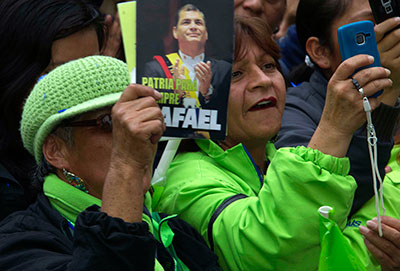
Electoral law dulls reporting as Correa nears re-election
It’s by far the dullest space in the newspaper: Every day in El Universo, Ecuador’s leading daily, readers can find eight small photos and news blurbs summing up the activities of the eight presidential candidates. The articles are the same size and blocked together in a layout that resembles a tic-tac-toe game, minus the ninth…
Ecuador fines newsmagazine over opinion column
Bogotá, October 4, 2012–The Committee to Protect Journalists condemns the exorbitant fine imposed upon a Quito newsmagazine for an opinion column related to a national referendum and urges Ecuadoran authorities to ensure that election regulations are not used to punish outlets for critical coverage.
